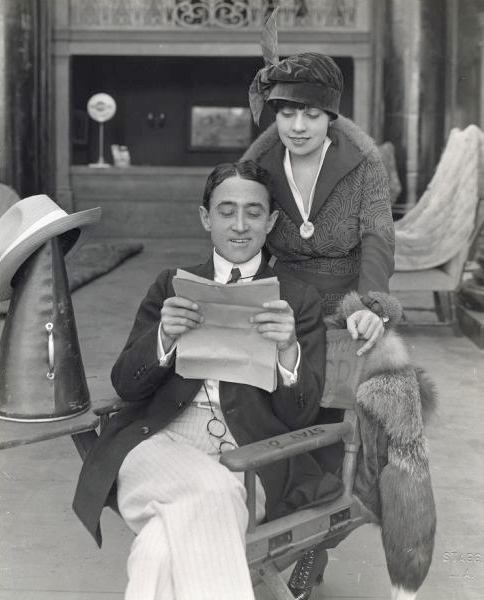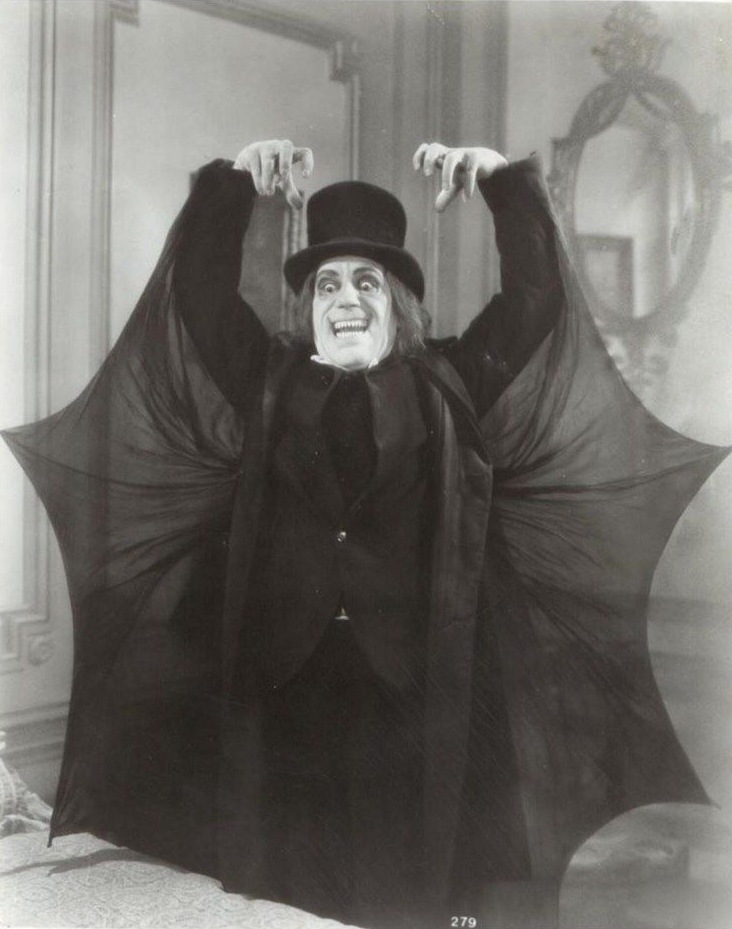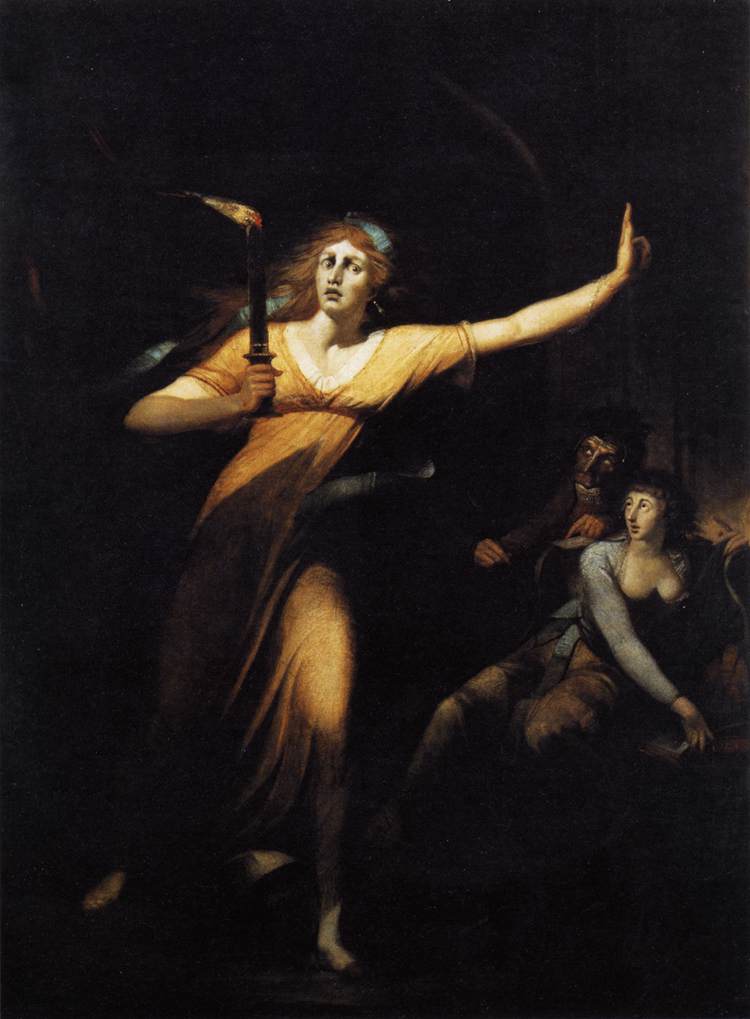|
Macbeth (1916 Film)
''Macbeth'' is a silent, black-and-white 1916 film adaptation of the William Shakespeare play ''Macbeth''. It was directed by John Emerson, assisted by Erich von Stroheim, and produced by D. W. Griffith, with cinematography by Victor Fleming. The film starred Herbert Beerbohm Tree and Constance Collier, both famous from the stage and for playing Shakespearean parts. Although released during the first decade of feature filmmaking, it was already the seventh version of ''Macbeth'' to be produced, one of eight during the silent film era. It is considered to be a lost film. In the companion book to his '' Hollywood'' television series, Kevin Brownlow states that Sir Herbert failed to understand that the production was a silent film and that speech was not needed so much as pantomime. Tree, who had performed the play numerous times on the stage, kept spouting reams of dialogue. So Emerson and Fleming simply removed the film and cranked an empty camera so as not to waste film when ... [...More Info...] [...Related Items...] OR: [Wikipedia] [Google] [Baidu] |
John Emerson (filmmaker)
John Emerson (born Clifton Paden; May 29, 1874 – March 7, 1956) was an American stage actor, playwright, producer, and director of silent films (many featuring Douglas Fairbanks). Emerson was married to Anita Loos from June 15, 1919 until his death, and prior to that the couple had worked together as a writing team for motion pictures. They would continue to be credited jointly, even as Loos pursued independent projects. Biography Born and educated in Ohio, Emerson's earliest documented acting credits date from 1904, however like D. W. Griffith he probably played in regional stock companies before then. By 1912—the earliest known year for his involvement in film, as a writer—Emerson was working regularly as a director and writer on the Broadway stage. After periods with American Film Manufacturing Company, where he worked with Allan Dwan and Famous Players-Lasky, Emerson collaborated with George Nichols (actor), George Nichols in making ''Ghosts (1915 film), Ghosts'', a G ... [...More Info...] [...Related Items...] OR: [Wikipedia] [Google] [Baidu] |
Lost Film
A lost film is a feature or short film that no longer exists in any studio archive, private collection, public archive or the U.S. Library of Congress. Conditions During most of the 20th century, U.S. copyright law required at least one copy of every American film to be deposited at the Library of Congress at the time of copyright registration, but the Librarian of Congress was not required to retain those copies: "Under the provisions of the act of March 4, 1909, authority is granted for the return to the claimant of copyright of such copyright deposits as are not required by the Library." A report created by Library of Congress film historian and archivist David Pierce claims: * 75% of original silent-era films have perished. * 14% of the 10,919 silent films released by major studios exist in their original 35 mm or other formats. * 11% survive only in full-length foreign versions or film formats of lesser image quality. Of the American sound films made from 1927 to 1 ... [...More Info...] [...Related Items...] OR: [Wikipedia] [Google] [Baidu] |
Olga Grey
Olga Grey (born Anushka Zacsek or Anna Zacsek, November 10, 1896 – April 25, 1973) was an American silent film actress, sometimes billed with the alternate spelling of her last name, Olga Gray. She was born in New York city to Hungarian immigrants. Her father wanted her to become a violinist, so she studied music while harboring dreams of being an actress. She appeared in some amateur productions before joining a Little Theatre Movement, Little Theatre in Los Angeles. Her success there paved the way for her work in films. By her late teens, she was pursuing an acting career in Hollywood, Los Angeles, Hollywood. She began working as an extra. Her first film appearance was in the 1915 film ''His Lesson'', in which she had the lead role. She would have twelve film roles that year, including a role (as the actress Laura Keene) in the now classic and controversial film ''The Birth of a Nation'', starring Lillian Gish, Mae Marsh, and directed by D. W. Griffith. In 1916 she appeare ... [...More Info...] [...Related Items...] OR: [Wikipedia] [Google] [Baidu] |
Mary Alden
Mary Maguire Alden (June 18, 1883 – July 2, 1946) was an American motion picture and stage actress. She was one of the first Broadway actresses to work in Hollywood. Life Alden was born in New York City on June 18, 1883. She performed on Broadway in ''Personal'' (1907) and ''The Rule of Three'' (1914). She worked for the Biograph Company and Pathé Exchange in the first portion of her career. Her most popular role in movies came in ''The Birth of a Nation'' directed by D.W. Griffith in 1915. Alden played the role of a mulatto woman in love with a northern politician. The following year she was in Griffith's ''Intolerance'' with Mae Marsh, Miriam Cooper, and Vera Lewis. After making ''Less Than The Dust'' with Mary Pickford in 1917, she took a temporary leave from motion pictures, acting for a while on the stage. Critics acclaimed Alden's portrayal of the mother, Mrs. Anthon, in ''The Old Nest'' (1921) and her characterization of an old lady in ''The Man With Two Mothers'' (19 ... [...More Info...] [...Related Items...] OR: [Wikipedia] [Google] [Baidu] |
Banquo
Lord Banquo , the Thane of Lochaber, is a semi-historical character in William Shakespeare's 1606 play ''Macbeth''. In the play, he is at first an ally of Macbeth (both are generals in the King's army) and they meet the Three Witches together. After prophesying that Macbeth will become king, the witches tell Banquo that he will not be king himself, but that his descendants will be. Later, Macbeth in his lust for power sees Banquo as a threat and has him murdered by three hired assassins; Banquo's son, Fleance, escapes. Banquo's ghost returns in a later scene, causing Macbeth to react with alarm in public during a feast. Shakespeare borrowed the character Banquo from ''Holinshed's Chronicles'', a history of Britain published by Raphael Holinshed in 1587. In ''Chronicles'' Banquo is an accomplice to Macbeth in the murder of the king, rather than a loyal subject of the king who is seen as an enemy by Macbeth. Shakespeare may have changed this aspect of his character to please Kin ... [...More Info...] [...Related Items...] OR: [Wikipedia] [Google] [Baidu] |
Ralph Lewis (actor)
Ralph Percy Lewis (October 8, 1872 – December 4, 1937) was an American actor of the silent film era. Born in 1872 in Englewood, Illinois, Lewis attended Northwestern University. Lewis appeared in 160 films between 1912 and 1938. The character actor remains perhaps best remembered for his role as abolitionist U.S. Representative Austin Stoneman in D. W. Griffith's ''The Birth of a Nation'' (1915) and the governor in '' Intolerance'' (1916). Lewis's film debut came in 1912. He also starred in one of the early Hollywood sound shorts, ''Gaunt'', in 1931. He was married to actress Vera Lewis. Lewis died in Los Angeles, California, on December 4, 1937, after being hit on November 25, 1937 by a limousine driven by a chauffeur working for Jack L. Warner. Filmography * ''The Great Leap: Until Death Do Us Part'' (1914) (film debut) * '' Home, Sweet Home'' (1914) * '' The Escape'' (1914) - The Senator * ''The Avenging Conscience'' (1914) - The Detective (film debut) * '' The Floo ... [...More Info...] [...Related Items...] OR: [Wikipedia] [Google] [Baidu] |
King Duncan
King Duncan is a fictional character in Shakespeare's ''Macbeth.'' He is the father of two youthful sons (Malcolm and Donalbain), and the victim of a well-plotted regicide in a power grab by his trusted captain Macbeth. The origin of the character lies in a narrative of the historical Donnchad mac Crinain, King of Scots, in Raphael Holinshed's 1587 '' The Chronicles of England, Scotland, and Ireland,'' a history of Britain familiar to Shakespeare and his contemporaries. Unlike Holinshed's incompetent King Duncan (who is credited in the narrative with a "feeble and slothful administration"), Shakespeare's King Duncan is crafted as a sensitive, insightful, and generous father-figure whose murder grieves Scotland and is accounted the cause of turmoil in the natural world. Analysis King Duncan is a father-figure who is generous and kind. Duncan is also firm ("No more that Thane of Cawdor shall deceive / Our bosom interest. Go pronounce his present death / And with his former ti ... [...More Info...] [...Related Items...] OR: [Wikipedia] [Google] [Baidu] |
Spottiswoode Aitken
Frank Spottiswoode Aitken (16 April 1868 – 26 February 1933) was a Scottish-American actor of the silent era. He played Dr. Cameron in D. W. Griffith's epic drama ''The Birth of a Nation''. Early years Aitken was born 16 April 1868 in Edinburgh, Scotland. Acting In his book, ''The King of the Movies: Film Pioneer Siegmund Lubin'', Joseph P. Eckhardt wrote that Aitken was "trained as a Shakespearean actor, with many years of experience under his belt." His film debut came in 1911. He eventually appeared in 81 feature films between 1914 and 1927. Businessman Aitken was one of the first actors to settle in Los Angeles when the film industry was still at its strongest in New York. He invested most of his earnings in real estate, buying up orange groves around what would become Hollywood. Personal life Aitken was involved in a controversy in 1922 when, after suing his wife Marion Dana Jones for divorce for alleged infidelity, she countersued. A United Press news story repo ... [...More Info...] [...Related Items...] OR: [Wikipedia] [Google] [Baidu] |
Macduff (Macbeth)
Lord Macduff, the Thane of Fife, is a character and the main antagonist in William Shakespeare's ''Macbeth'' (c.1603–1607) that is loosely based on history. Macduff, a legendary hero, plays a pivotal role in the play: he suspects Macbeth of regicide and eventually kills Macbeth in the final act. He can be seen as the avenging hero who helps save Scotland from Macbeth's tyranny in the play. The character is first known from '' Chronica Gentis Scotorum'' (late 14th century) and ''Orygynale Cronykil of Scotland'' (early 15th century). Shakespeare drew mostly from ''Holinshed's Chronicles'' (1587). Although characterised sporadically throughout the play, Macduff serves as a foil to Macbeth and a figure of morality. Origin The overall plot that would serve as the basis for ''Macbeth'' is first seen in the writings of two chroniclers of Scottish history, John of Fordun, whose prose '' Chronica Gentis Scotorum'' was begun about 1363, and Andrew of Wyntoun's Scots verse ''Orygynale ... [...More Info...] [...Related Items...] OR: [Wikipedia] [Google] [Baidu] |
Wilfred Lucas
Wilfred Van Norman Lucas (January 30, 1871 – December 13, 1940) was a Canadian American stage actor who found success in film as an actor, director, and screenwriter. Early life Lucas was born in Norfolk County, Ontario on January 30, 1871,US Passport Application July 17, 1917 (Wilfred Lucas) most likely in the township of Townsend where at the time his father served as a Wesleyan Methodist minister. He was the youngest of three sons to be raised by Daniel Lucas and the former E. Adeline Reynolds, in Townsend and later Montreal, Quebec. Lucas attended the High School of Montreal and McGill UniversityWilfred Lucas - Motion Picture Studio Directories, 1919 and 1921 (Ancestry.com) before immigrating to America in the late 1880s. His early career there was that of a baritone singer performing at church functions and at small venues. Career Lucas eventually made a name for himself performing in light and grand opera in America and abroad. He made his Broadway debut on April 4, 1 ... [...More Info...] [...Related Items...] OR: [Wikipedia] [Google] [Baidu] |
Lady Macbeth
Lady Macbeth is a leading character in William Shakespeare's tragedy '' Macbeth'' (). As the wife of the play's tragic hero, Macbeth (a Scottish nobleman), Lady Macbeth goads her husband into committing regicide, after which she becomes queen of Scotland. After Macbeth becomes a murderous tyrant, she is driven to madness by guilt over their crimes, and commits suicide offstage. Lady Macbeth is a powerful presence in the play, most notably in the first two acts. Following the murder of King Duncan, however, her role in the plot diminishes. She becomes an uninvolved spectator to Macbeth's plotting and a nervous hostess at a banquet dominated by her husband's hallucinations. Her sleepwalking scene in the fifth act is a turning point in the play, and her line "Out, damned spot!" has become a phrase familiar to many speakers of the English language. The report of her death late in the fifth act provides the inspiration for Macbeth's "Tomorrow and tomorrow and tomorrow" speech. Th ... [...More Info...] [...Related Items...] OR: [Wikipedia] [Google] [Baidu] |
Macbeth (character)
Lord Macbeth, the Thane of Glamis and quickly the Thane of Cawdor, is the title character and main protagonist in William Shakespeare's ''Macbeth'' (c. 1603–1607). The character is loosely based on the historical king Macbeth of Scotland and is derived largely from the account in ''Holinshed's Chronicles'' (1577), a compilation of British history. A Scottish noble and an initially valiant military man, Macbeth, after a supernatural prophecy and the urging of his wife, Lady Macbeth, commits regicide, usurping the kingship of Scotland. He thereafter lives in anxiety and fear, unable to rest or to trust his nobles. He leads a reign of terror until defeated by his former ally Macduff. The throne is then restored to the rightful heir, the murdered King Duncan's son, Malcolm. Origin Shakespeare's version of Macbeth is based upon Macbeth of Scotland, as found in the narratives of the Kings Duff and Duncan in ''Holinshed's Chronicles'' (1587). In the play The tragedy begins am ... [...More Info...] [...Related Items...] OR: [Wikipedia] [Google] [Baidu] |



.png)

.jpg)

.jpg)